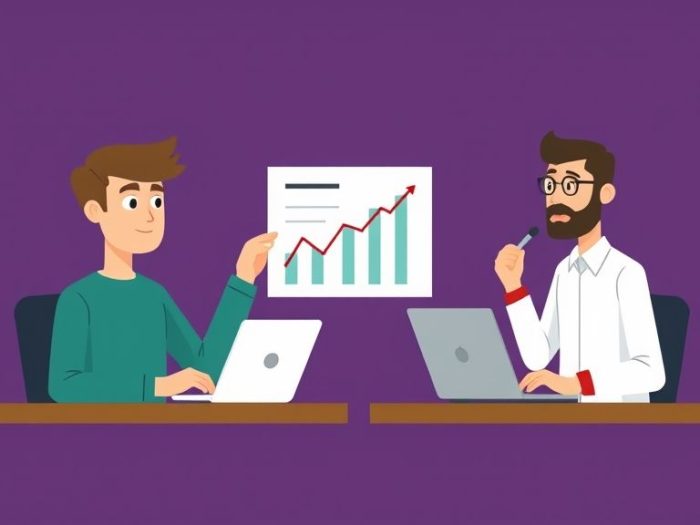The Dunning-Kruger effect is a cognitive bias that can significantly impact investors, especially those who are new to the market. Understanding this effect is crucial for developing a realistic perspective on your abilities and avoiding costly mistakes. This article explores the Dunning-Kruger effect and its implications for investing.
Understanding the Dunning-Kruger Effect
The Dunning-Kruger effect is a cognitive bias where people with low ability at a task tend to
overestimate their ability. It’s characterized by:
- Illusory Superiority: Incompetent individuals believe they are more competent than they actually are.
- Illusory Inferiority: Highly competent individuals may underestimate their abilities.
The effect is often visualized as a curve:
- Peak of “Mount Stupid”: A period of initial overconfidence.
- Valley of Despair: A phase of realization of one’s incompetence.
- Slope of Enlightenment: Gradual improvement and increasing confidence.
How the Dunning-Kruger Effect Affects Investors
New investors often fall prey to the Dunning-Kruger effect:
- Overconfidence: They may overestimate their understanding of the market after learning a few basic concepts.
- Risky Behavior: This overconfidence can lead to taking on excessive risks.
- Poor Decisions: They may make ill-informed investment choices.
- Ignoring Advice: They may disregard the advice of more experienced investors.
Consequences of the Dunning-Kruger Effect in Investing
- Financial Losses: Overconfidence can lead to costly trading mistakes.
- Delayed Learning: The inability to recognize incompetence hinders improvement.
- Emotional Stress: Unexpected losses can cause significant emotional distress.
Strategies to Overcome the Dunning-Kruger Effect
1. Seek Continuous Learning
Adopt a mindset of lifelong learning. The market is constantly evolving, and there’s always more to learn.
2. Start Small and Gain Experience
Begin with smaller investments and gradually increase your position size as your knowledge and experience grow.
3. Embrace Humility
Recognize that you don’t know everything. Be open to feedback and admit your mistakes.
4. Question Your Assumptions
Actively challenge your beliefs and assumptions. Don’t assume you’re always right.
5. Use a Trading Journal
Keep a detailed record of your trades and analyze your successes and failures objectively.
6. Seek Feedback from Experienced Investors
Learn from the knowledge and experience of more seasoned investors.
7. Focus on Risk Management
Prioritize risk management over chasing quick profits.
Example
A new investor learns a simple technical analysis indicator and, feeling confident, invests a large sum in a risky trade. When the trade goes against them, they experience significant losses, a harsh lesson in the Dunning-Kruger effect.
Conclusion
The Dunning-Kruger effect can be a significant obstacle to successful investing. By embracing continuous learning, starting small, questioning assumptions, and prioritizing risk management, investors can overcome this bias and make more informed and profitable decisions.
Related Keywords
Dunning-Kruger effect, cognitive bias, investing psychology, trading psychology, overconfidence,
investment mistakes, trading mistakes, financial psychology, behavioral finance, investment
education.
Frequently Asked Questions (FAQ)
1. What is the Dunning-Kruger effect?
The Dunning-Kruger effect is a cognitive bias where people with low ability at a task tend
to overestimate their ability.
2. What are the key characteristics of the Dunning-Kruger effect?
Key characteristics include illusory superiority (believing you’re more competent than
you are) and illusory inferiority (competent people underestimating their abilities).
3. How does the Dunning-Kruger effect manifest in investing?
New investors may overestimate their understanding of the market, leading to
overconfidence, risky behavior, and poor decisions.
4. What are the consequences of the Dunning-Kruger effect in investing?
Consequences include financial losses, delayed learning, and emotional stress.
5. What is the most important strategy to overcome the Dunning-Kruger effect?
Adopting a mindset of continuous learning and recognizing that you don’t know
everything is crucial.
6. Why is starting small and gaining experience important?
Starting small allows you to learn and gain experience without risking significant
capital, helping you move gradually along the “slope of enlightenment.”
7. How can questioning your assumptions help?
Questioning your assumptions promotes objectivity and helps you avoid overconfidence
in your initial analysis.
8. What is the value of using a trading journal?
A trading journal allows you to objectively analyze your trades and identify patterns
or mistakes.
9. Why is seeking feedback from experienced investors beneficial?
Experienced investors can offer valuable insights and help you avoid common pitfalls.
10. What should be the primary focus for any investor, especially when starting out?
Prioritizing risk management is paramount to protect your capital and ensure long-term
survival in the market.



